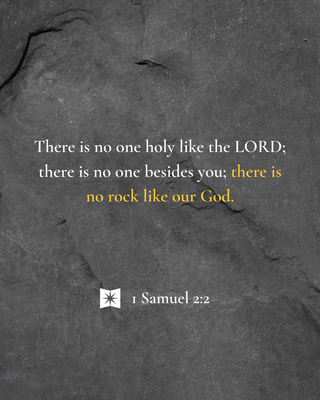
- Recent Translations
- All Translations
1 Samuel 2:25 in Other Translations
1 Samuel 2:25 Meaning and Commentary
If one man sin against another, the judge shall judge him
When one man does an injury to another in his person and property, the case is brought before the judge, he hears it, examines into it, and determines upon it, and does justice, orders that the injured person have satisfaction made him, and so the matter is ended:
but if a man sin against the Lord, who shall entreat for him?
all sin is in some sense against God, as it is contrary to his nature, and a breach of his law, and especially bold, daring, presumptuous sins; but there are some sins that are more immediately and particularly against God, as sins against the first table of the law, which relate to the worship of God, and such were the sins of Eli's sons in the affair of sacrifices; all sin against God is aggravated by the perfections of his nature, and made tremendous, as being against a God of strict justice, of unspotted purity and holiness, and who is omniscient, omnipresent, and omnipotent; and by the relation and connection there is between God and men, he is their Creator and Preserver, the God of their lives and mercies, and of all the blessings they enjoy, and yet sin against him! who will entreat the favour of God for such persons, ask pardon for them, and beseech the Lord to be propitious and merciful to them? who on earth will do it? such persons are scarce and rare, few care to stand up in the gap between God and sinners; in some cases they ought not, in others they cannot. Eli suggests by this question, that he could not, even for his own sons; and who in heaven can or will do it? not saints departed, who know nothing of what is done below, nor angels, only the Lord Jesus Christ; he is the only Mediator between God and men, who has engaged his heart to approach unto God, and interpose between him and sinful men, and has made peace and reconciliation by his blood, and is become the propitiation for sin, and ever lives to make intercession for transgressors, and is always prevalent and successful in his mediation and intercession; excepting him, there is none to entreat for those that have sinned against the Lord, see ( 1 John 2:1 1 John 2:2 ) . In answer to this question, who shall entreat for him? the Jews say F24 repentance and good works; but these are insufficient advocates for a sinner, without the atoning sacrifice of Christ, who is propitiation for sin, and upon which a plea can only be founded:
notwithstanding, they hearkened not unto the voice of their father;
to his reproofs and counsels, his reasonings and expostulations; though his rebukes were so gentle, and this last reasoning of his so close and strong, so nervous and striking:
because the Lord would slay them;
it was his purpose and decree, his will and pleasure, to cut them off for their wickedness; wherefore he gave them up to a judicial blindness, and hardness of heart, as he did Pharaoh, so that they were proof against all advice, admonitions, and arguments used with them: some choose to read the words, "therefore the Lord would slay them" F25, because they were disobedient to the voice of their father; but the former sense is best; for his will to destroy them was not so much for their disregard to the reproofs of their father in which he himself was culpable, as for their breach of his laws.
F24 T. Bab. Yoma, fol. 87. 1.
F25 (yk) "ideo", Noldius, p. 395. No. 1342. "idcirco vel quapropter", Quistorp, so Patrick.
1 Samuel 2:25 In-Context
Cross References 2
Footnotes 1
- [a] Or "the judges"

